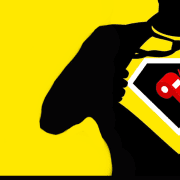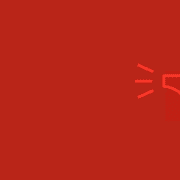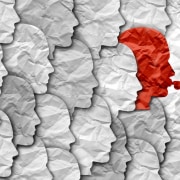|
Getting your Trinity Audio player ready...
|
By Janine Erasmus
World Press Freedom Day (WPFD), marked every year on 3 May, is a day of both reflection and reminders – the former giving media professionals a chance to think about issues of press freedom and professional ethics, and the latter prompting governments to respect their commitment to press freedom.
But WPFD is also a day of support for media who have become targets of attacks with the sinister motive of curtailing press freedom or keeping information hidden. Often the motive for such malicious action is to prevent the exposition of corruption, because the media and journalists are themselves whistle-blowers.
It is thus fitting that World Whistle-Blower Day follows relatively soon after WFPD, because the two groups are linked in a long-standing mutually beneficial relationship. Each relies on the other to a certain degree – journalists to get information for their stories from whistle-blowers, and whistle-blowers for the exposition of their stories by journalists.
As a journalist myself, and one who works for an anti-corruption activist organisation, this resounds deeply with me, because I relate strongly to both sides. I have been writing about and engaging with whistle-blowers for nearly 11 years, and there are no words to appropriately convey my respect for their courage.
Every year on 23 June Corruption Watch (CW) joins the world in honouring the whistle-blowers who have risked their lives in pursuit of the truth. Many of them have lost their lives for that cause. Because CW’s founding operational model was built on the strategic use of the information whistle-blowers brought to us, we are deeply indebted to those who overcame fear and hesitation to tell us their stories.
To all those who turned to CW, the Public Protector, other civil society organisations such as Whistleblower House or the Organisation Undoing Tax Abuse, law enforcement authorities, or public and private sector anti-corruption hotlines, among others – I thank you and applaud you.
Protecting their sources
If a free press plays a role in blowing the whistle on corruption, that same press arguably plays as great a role in protecting whistle-blowers who come to them. “Journalistic privilege is generally defined as the ‘right of a journalist to refuse to disclose confidential sources of information or, in some instances, the information itself’,” wrote Sanette Nel, former Unisa criminal law professor, in the Comparative and International Law Journal of Southern Africa in 2005.
Nel’s former colleague in academia, former Rhodes University professor of journalism and media studies Guy Berger, wrote in a 2004 paper for the Africa Conference on Freedom of Expression: “Protection of journalists’ confidential sources in the public interest is not self-evident, but has to be argued for against public interest in identifying such sources.
“Such an argument needs to be rooted in the long-term value of protecting media’s ability to play an effective role in a democracy,” Berger added.
Furthermore, the situation is not as simple as the obvious scenario of state actors seeking to find out who ratted on them, although much of the time this is the case. Berger elaborated: “Individual citizens or private companies may also seek legal means to compel disclosure if they are pursuing civil actions … or if they believe such information can assist their defence in a criminal case.”
There are, therefore, several levels of nuance to the argument for protection of sources, but for the purpose of this article we will return to Nel’s quoted comment, which will guide us back towards whistle-blowers.
Dangerous liaisons
The media and whistle-blowers, working together, comprise a vital element in the fight against corruption. In particular, investigative journalism plays a crucial role in fighting impunity and exposing corruption to the public view.
This is a difficult and dangerous specialisation in the noble profession. For whistle-blowers, investigative journalists are often the first avenue for disclosure – or the last, if other avenues have failed. Many sensational stories of corruption have been revealed and covered extensively in the media over the years – here at home we immediately think of the exposition of corruption linked to former president Jacob Zuma and the publication of the #GuptaLeaks investigation, the prison escape of Thabo Bester, the revelations of Namibia’s Fishrot scandal, large-scale corruption at the National Lotteries Commission, or the dodgy dealings of businessman Zunaid Moti. These are just a few examples.
Had it not been for collaboration between the media and whistle-blowers, state capture in South Africa might have been revealed much later and after much more damage was done and public money looted. News reports at the time prompted formal complaints to the Office of the Public Protector to investigate the allegations of corruption at the highest levels of government, and this investigation led to the 2014 Secure in Comfort report on Nkandla and the 2016 State of Capture report, both of which implicated Zuma and his network in alleged widespread unethical and illegal activity, and ultimately led to his removal from office.
South Africa is still struggling with the aftermath of state capture, and will be for years to come.
The Zunaid Moti matter resulted in a court case in which the Moti Group tried to persuade the bench to force journalists working on the case to reveal where they got their information from, and to prevent the press from exposing further controversy. Moti had been implicated in questionable activity involving high-ranking Zimbabwean politicians, explains amaBhungane whose investigative journalists delved deeply into the matter, “bringing to light evidence of dubious multimillion dollar transactions, a sustained effort to accumulate political influence, and apparent attempts to capture parts of Zimbabwe’s crumbling state.”
CW joined the case as amicus curiae, arguing for the protection of journalistic sources as a vital tool in the continuing fight to expose and prevent corruption. The organisation drew the court’s attention to the fact that the media plays an important role in uncovering corruption, ensuring transparency. and fostering accountability. Essentially, it said that an effective investigative media plays a critical role in South Africa’s anti-corruption efforts and this role should be supported by the courts when they consider the country’s international obligations to fight corruption.
Together with the other amici – the South African National Editors’ Forum, Media Monitoring Africa, and the Campaign for Free Expression – CW successfully supported amaBhungane in getting the gagging order overturned.
Protecting those who protect us
Internationally, I think of high-profile whistle-blowers like Julian Assange of WikiLeaks, Edward Snowden, Bill Browder, Erin Brockovich, or Chelsea Manning. Assange, like South African whistle-blower Athol Williams, had to leave his home country and seek refuge abroad. Snowden, too, fled the US to Moscow and has since become a naturalised Russian citizen.
These individuals and media organisations put their own safety aside to expose corruption on a massive scale. In essence, they helped alter how ordinary people interact with information relating to operations of large international corporations, and they have protected us all from further corruption-related damage to the privacy of individuals, from political bullying, and to some extent, from climate change.
It cannot be emphasised strongly enough how important it is that both whistle-blowers and media workers are protected and allowed to do what is in the best interest of the public.
All the afore-mentioned incidents, and more, bring home the raison d’être for a free press and an enabling environment for blowing the whistle. Think of the money that has already been stolen and the systems that have been compromised, and imagine what would have happened had whistle-blowers not stepped in to do their bit.
In South Africa, there is forward movement on strengthening the current whistle-blower protection legislation, after years of advocacy from civil society and inaction from government. CW and other organisations responded to proposed changes outlined in a Department of Justice discussion document last year.
These proposed changes follow the state capture commission’s recommendation, contained in its report of 2022, that legislation on whistle-blowers be amended to provide increased protection. Several of the commission’s witnesses made a special plea to chairperson Chief Justice Raymond Zondo for such, stating that many in the public and private sector have suffered severe detriment due to their decision to blow the whistle on corruption.
CW’s submission placed whistle-blowers at the centre of any changes, saying that: “The legislative regime put in place to facilitate protected disclosures and protect whistle-blowers has a direct bearing on the protection, promotion, and fulfilment of constitutional rights, and the compliance with South Africa’s international human rights obligations.”
The goal of ensuring the broadest possible protection for whistle-blowers, therefore, should be a foundational principle of the legislation and the starting point for the drafting of any definitions, CW stated.
But until the day that the new legislation comes into effect, whistle-blowers like Babita Deokaran and journalists like Thomo Ngadima remain vulnerable to attacks from individuals and entities alleged to be involved in corruption.








